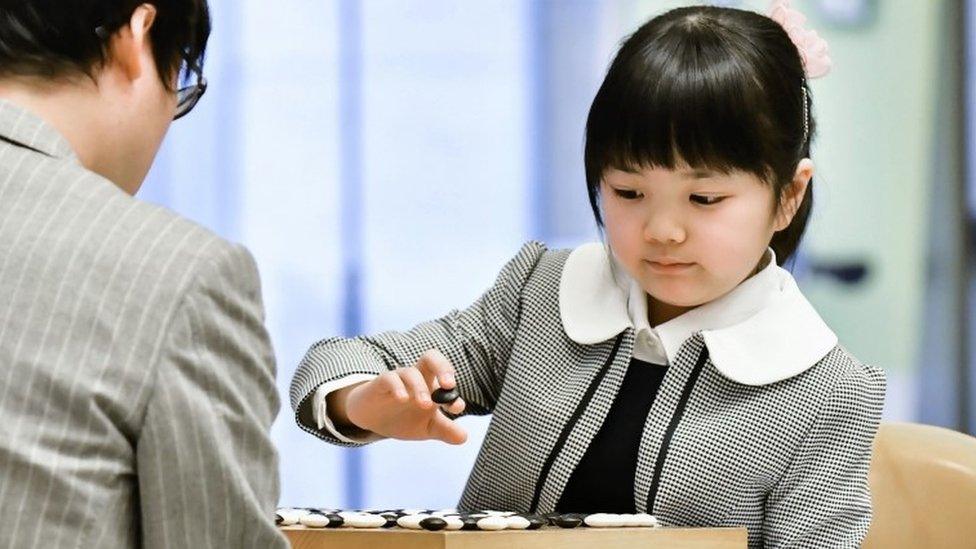Fukubukuro: Why Japan goes crazy for 'lucky bags'
- Published
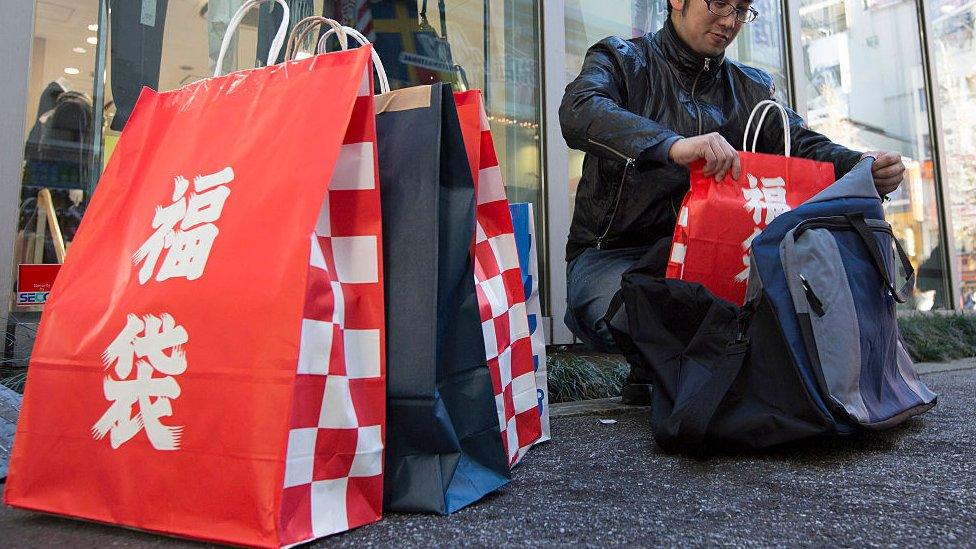
The words Fukubukuro, or lucky bag, are written on this bright red paper bag
They're called Fukubukuro - and at the start of each new year, thousands of people in Japan queue up for hours to get their hands on them.
These "lucky bags" are essentially mystery goodie bags that contain anything from clothes to food, depending on the store selling them.
They started out as a way for Japanese department stores to get rid of old stock at the start of the year, but now have become an annual craze nationwide.
'The excitement of not knowing'
Sales for Fukubukuro open every year on 1 January, and they're typically sold across the entire first week of January, or until they run out.
For many, it isn't the new year without a Fukubukuro.
It's unclear how exactly the Fukubukuro originated - there are multiple stories told - but one version says they were sold as early the 1900s when department stores started cropping up in Japan.
The department stores, it is said, wanted to get rid of their stock before the start of the new year and so decided to sell mystery bags filled with random leftover goods at a sizeable discount.
Today, department stores around Japan and even global chains like Starbucks and Armani have jumped on the trend.
Allow Facebook content?
This article contains content provided by Facebook. We ask for your permission before anything is loaded, as they may be using cookies and other technologies. You may want to read Meta’s Facebook cookie policy, external and privacy policy, external before accepting. To view this content choose ‘accept and continue’.

Bags are now no longer filled with random leftovers, but are usually stacked with premium objects that would be significantly more expensive if bought separately.
The costs range from a few dollars to a few hundred dollars.
Many queue up for hours in front of their favourite stores just to get their hands on a Fukubukuro, as they are usually sold only in limited amounts.
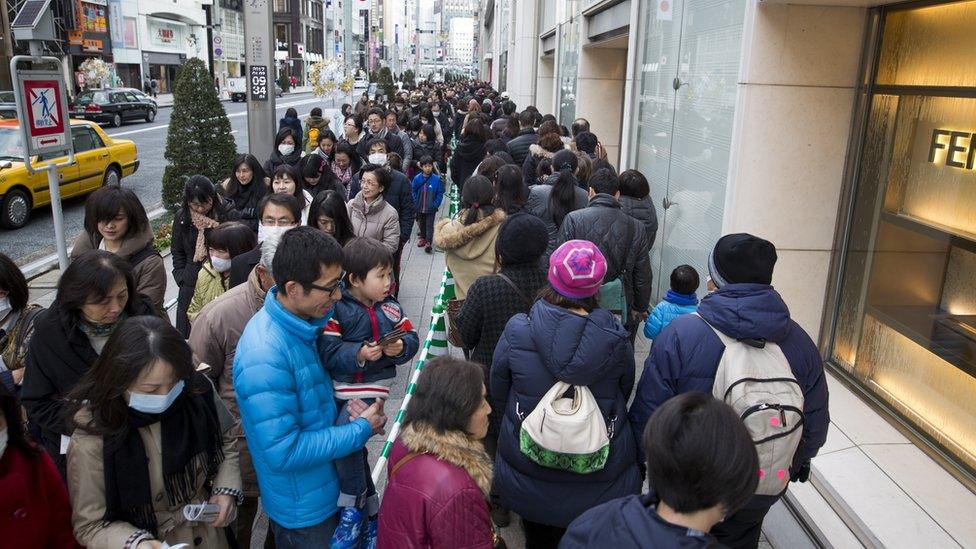
The queues for Fukubukuro can extend far beyond a store
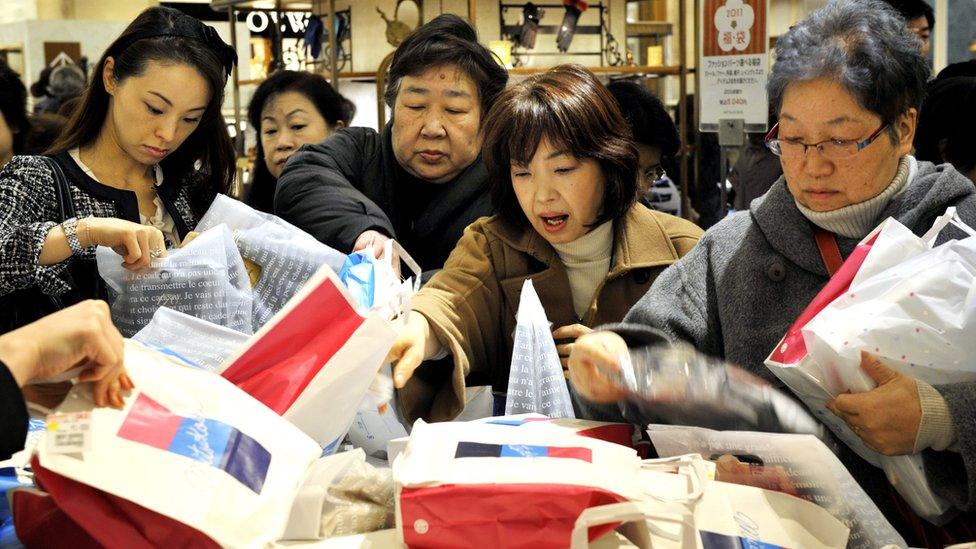
And once you're in the store itself, it's another battle trying to get hold of a bag
"[Buying a Fukubukuro] is a bit like gambling," Clark Lawton from Japan told the BBC.
"I've bought Fukubukuros myself... it's the excitement of not knowing what's inside them, and also the chance at getting something cheaper than its actual cost."
Luck of the draw
Every year, people take to social media to post pictures of their Fukubukuro "haul".
Allow X content?
This article contains content provided by X. We ask for your permission before anything is loaded, as they may be using cookies and other technologies. You may want to read X’s cookie policy, external and privacy policy, external before accepting. To view this content choose ‘accept and continue’.

"I'm so satisfied with this year's Fukubukuro!" says this Twitter user. "Best of all, the size is perfect."
Allow X content?
This article contains content provided by X. We ask for your permission before anything is loaded, as they may be using cookies and other technologies. You may want to read X’s cookie policy, external and privacy policy, external before accepting. To view this content choose ‘accept and continue’.

Allow X content?
This article contains content provided by X. We ask for your permission before anything is loaded, as they may be using cookies and other technologies. You may want to read X’s cookie policy, external and privacy policy, external before accepting. To view this content choose ‘accept and continue’.

Even restaurants and cafes are now selling Fukubukuro bags.
Allow X content?
This article contains content provided by X. We ask for your permission before anything is loaded, as they may be using cookies and other technologies. You may want to read X’s cookie policy, external and privacy policy, external before accepting. To view this content choose ‘accept and continue’.

But some who might not be as lucky with their Fukuburo haul have taken to selling it online, or swapping it amongst friends.
And if that's you - well, there's always next year.
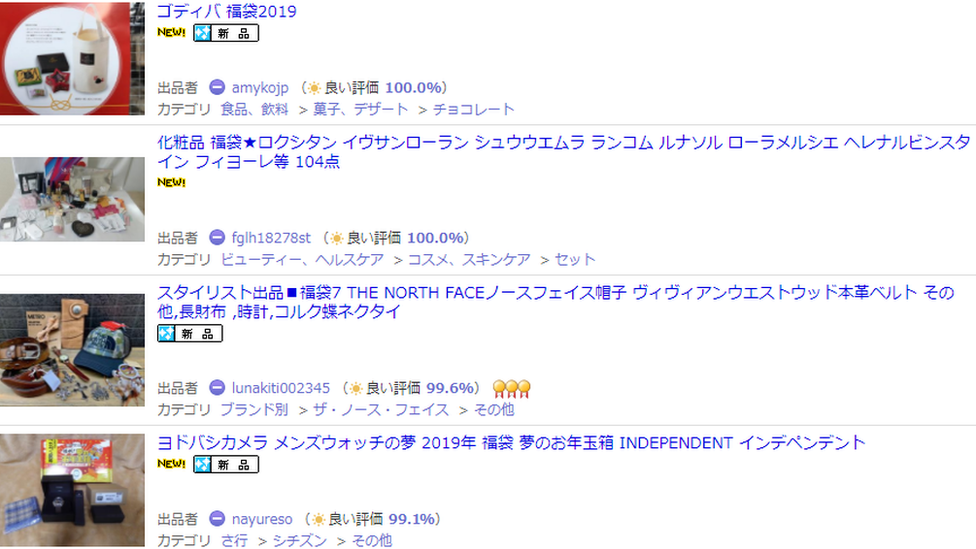
Various Fukubukuros have already been put up for sale online
- Published4 January 2019
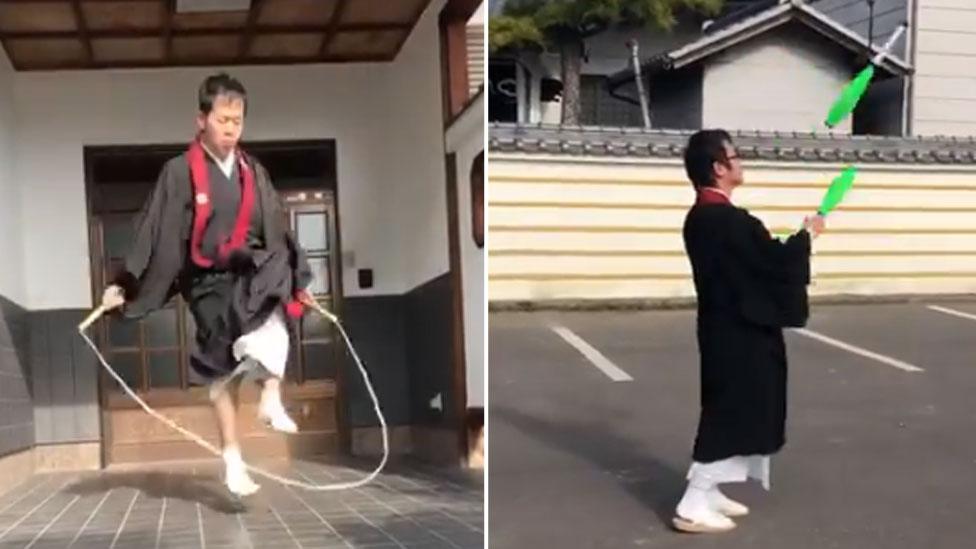
- Published7 January 2019
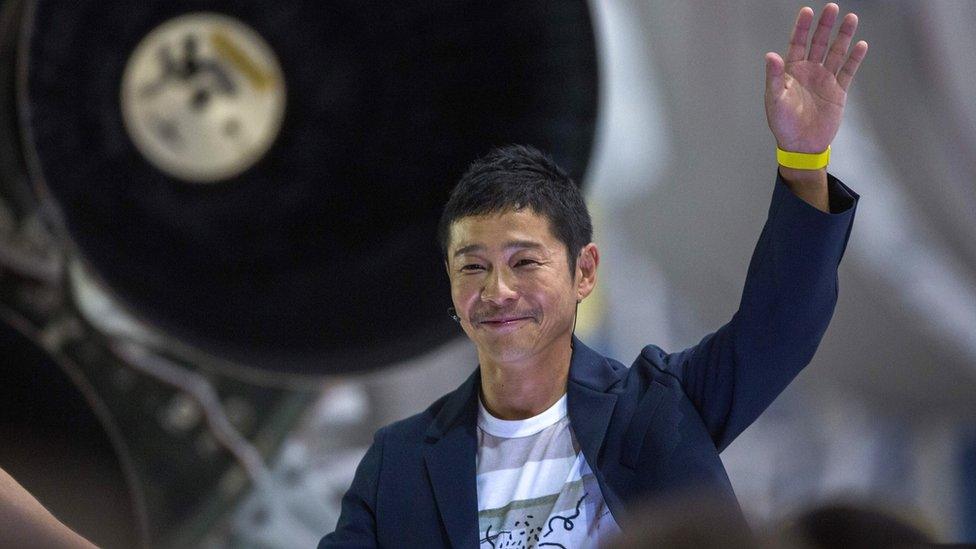
- Published6 January 2019
